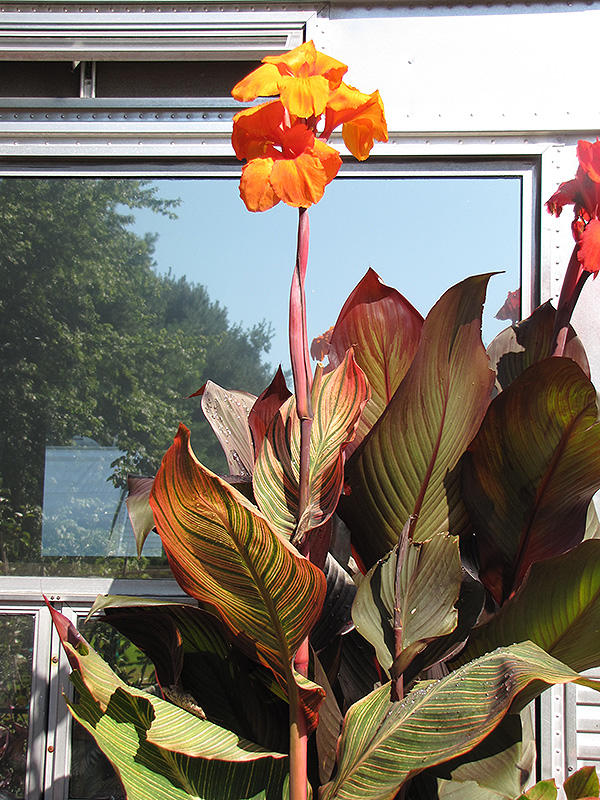Durban Canna
Description
This tall variety with impressivey large and colorful leaves is crowned with brilliant orange-red blooms in summer and fall; perfect for the back of borders or as an accent; perennial only where roots don't freeze
Landscape Attributes
Durban Canna is an herbaceous annual with a rigidly upright and towering form. Its wonderfully bold, coarse texture can be very effective in a balanced garden composition.
Durban Canna is recommended for the following landscape applications;
Planting & Growing
Durban Canna will grow to be about 6 feet tall at maturity extending to 8 feet tall with the flowers, with a spread of 4 feet. Although it's not a true annual, this fast-growing plant can be expected to behave as an annual in our climate if left outdoors over the winter, usually needing replacement the following year. As such, gardeners should take into consideration that it will perform differently than it would in its native habitat.
This plant should only be grown in full sunlight. It requires an evenly moist well-drained soil for optimal growth, but will die in standing water. It is not particular as to soil pH, but grows best in rich soils. It is highly tolerant of urban pollution and will even thrive in inner city environments, and will benefit from being planted in a relatively sheltered location. Consider applying a thick mulch around the root zone in winter to protect it in exposed locations or colder microclimates. This particular variety is an interspecific hybrid. It can be propagated by division; however, as a cultivated variety, be aware that it may be subject to certain restrictions or prohibitions on propagation.
Durban Canna is a fine choice for the garden, but it is also a good selection for planting in outdoor pots and containers. With its upright habit of growth, it is best suited for use as a 'thriller' in the 'spiller-thriller-filler' container combination; plant it near the center of the pot, surrounded by smaller plants and those that spill over the edges. It is even sizeable enough that it can be grown alone in a suitable container. Note that when growing plants in outdoor containers and baskets, they may require more frequent waterings than they would in the yard or garden.

